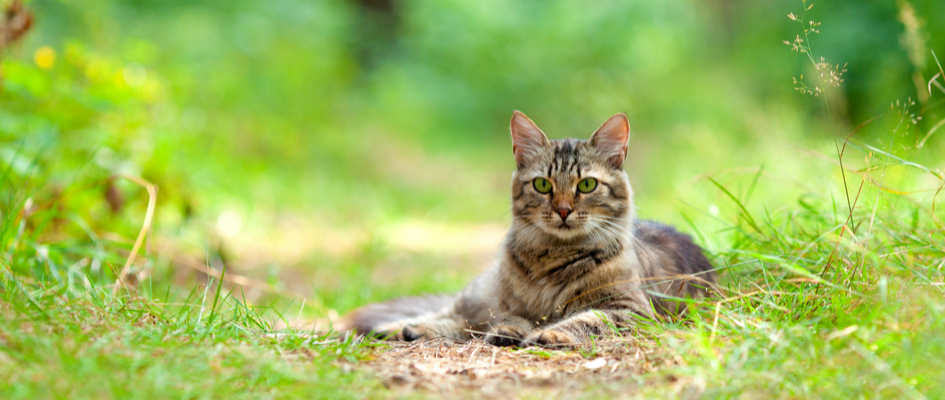Understanding what you should feed your cat is important as a good diet generally tends to promote and maintain good health. A cats metabolism is so heavily specialised in obtaining nutrition from meat, it’s important to choose the correct diet. Most cats are notoriously fussy — so getting a healthy and suitable diet into them (that they will enjoy) isn’t always as easy as it seems… and this might explain the sheer range of diets currently available on the market!
Cat nutrition 101
Cats have evolved as obligate carnivores, meaning that they need certain nutrients only found in animal tissues to survive. In particular, key nutrients that cats need include:
- High levels of protein in the diet (as much as 30-40% higher than a dog).
- Specific proteins, e.g. taurine and arginine. A taurine-deficient diet leads to blindness, heart disease, and a weakened immune system, while feeding a single meal deficient in arginine can lead to liver failure and seizures.
- Certain vitamins that they cannot make themselves, e.g. vitamin A (needed for vision).
In general, the best meal for a cat is a meat-based one, although using appropriate cereals and oils (as in many commercial diets) to balance the calorie provision is perfectly acceptable. Cats cannot thrive on a vegetarian, or survive on a vegan, diet without synthetic supplements.
So, with this vast array of options – where do we start? It can be a daunting decision. However, to make it easier, we’ve selected certain key features to consider below.

How old is your cat?
As we grow up from infants into toddlers into children into teenagers and into adults, our nutritional needs change. And of course, as we age, they change again. This situation in cats is exactly the same. Kittens typically need high calorie and high protein diets, with specific minerals such as calcium, for growth – more than at any other age. Adolescent active cats need more calories than adults; whereas older cats often benefit from limiting the amount of dietary protein to protect their kidneys. That’s not to say you need to buy a new food every six months or so (well, except for keeping up with those fast-growing kittens!), but that you need to be aware that your cat’s dietary needs will change.
What kind of lifestyle does your cat have?
Is your cat out and about, hunting and playing outdoors? Or are they more of a sofa-surfer? The more time they spend outside, the more calories they’re likely to require. HOWEVER, also ask yourself are they being fed anywhere else? Some cats have a great knack for persuading neighbours that they’re a poor starved stray, and may work their way from house
to house getting a fresh meal at each one… so keep a close eye on their waistline!
Does your cat have any dietary sensitivities?
While food allergies aren’t that common in cats, they do occasionally occur, so it’s worth being aware of what the protein source in their diet is.
Is there anyway your diet may be able to support and manage an existing issue for your cat?
Many health conditions have been proven to respond to certain balances of nutrients in diet – in particular, cystitis, and many bladder stones can even be dissolved by feeding the correct diet; cats with kidney disease will also benefit from a specialist renal diet that contains lower levels of high-quality protein, low phosphate, and altered salt balances. These specific food formulations are called “prescription diets”, and are available through us
(please don’t feed a prescription diet except on veterinary advice though!).
There are also diets available with specific nutrients (e.g. tryptophan) to help manage things like stress and anxiety.
Is the diet you are considering labelled a complete diet or a complementary diet?
A complete diet does what it says on the tin… it contains all the nutrients your cat needs, in the correct ratios. A complementary diet does not, and needs to be combined with another type of food to give a balanced meal. In general, most manufacturers provide complementary biscuit and wet diets, that you mix together. The problem with a complementary diet is that it assumes the cat will like both parts equally… which isn’t always the case!
Remember that your cat is an individual with their own unique requirements. No-one is better placed to know what they need than you and your vet — who both knows your cat as an individual. So, if it all seems a bit too much, and you’re not sure what the best option is — talk to one of our team! We can carry out an individual nutritional assessment for your cat and determine what their exact needs are, and then work together to find the best diet for them.
